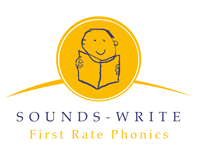PHONICS LEARNING
Phonics Statement
At Westfield Nursery and Primary School, we consider that it is vitally important that children have a secure understanding of the letter sounds and spelling system of English. Phonic skills need to be developed in a systematic, staged approach in order to help all children to achieve the best outcomes
Year 1 Phonics Screening Check
In the summer term, Year 1 children will take a Phonics Screening Check in which children will be expected to read 40 decodable ‘words’. This progress check identifies those children not at the expected level in reading – and these children will be re-checked in Year 2.
Due to the current pandemic all Y2 children will take their Phonics Screening Check in the Autumn term.
Phase 1
All children at Westfield Nursery & Primary school begin their phonics journey in our Little Acorns Nursery where they take part in daily phase 1 phonics sessions following the Letters and Sounds Program. Phase One of Letters and Sounds concentrates on developing children's speaking and listening skills and lays the foundations for the phonic work which starts in Unit 1 of Sounds-Write. The emphasis during Phase 1 is to get children attuned to the sounds around them and ready to begin developing oral blending and segmenting skills.
SOUNDS-WRITE
| Here, at Westfield Nursery and primary School we use the Sounds-Write first rate phonics scheme which is followed from Early Years Foundation Stage, through KS1 and into KS2 if required. Sounds-Write consists of two main sections, the intial code and the extended code. Sounds-Write enables teachers to immerse children in reading and spelling from the moment children begin their schooling in the Foundation Stage, throughout Key Stage 1 and into Key Stage 2. In addition, the programme also provides a highly successful intervention for special needs teachers. |
 |
|
Sounds-Write’s instructional method works effectively because it:
- provides clearly structured, easy-to-follow lesson plans
- is developmentally appropriate for beginning readers in YR, Y1 and Y2
- offers fast and highly effective intervention for children at all levels who have fallen behind in their reading and spelling
- is a real phonic programme that teaches in simple steps how the sounds of the language are represented by the writing system
- places emphasis on giving practice that is grounded in physical, concrete experience of the ideas and conceptual understanding the pupils need to assimilate
- teaches the three essential skills of segmenting, blending and phoneme manipulation necessary for reading and spelling throughout the programme on a daily basis until all pupils achieve the automaticity that underlies the fluency of every successful reader.
It is recommended that children should be taught a discrete 40 minute daily session of phonics and that teachers should follow the teaching sequence set out in the Sounds-Write teaching manual. In addition, phonic skills can be applied in reading and writing opportunities as well as in other areas of the curriculum. Teachers will check pupil progress using the Sounds-Write Diagnostic check.
Other resources supplementing Sounds-Write are Oxford Reading Tree, Dandelion readers, Songbirds and Sounds-Write unit books.
CONTACTS
|
|
Miss Angela Quirk Executive Headteacher |
|
|
Miss Nicola Hodgson Head Of School |
|
|
Miss Stacey Skinner Teacher & EYFS & KS1 Leader |
 |
Miss Amy Creaser Teacher & English Leader |
INFO FOR PARENTS
RESOUCES
Phonics & Reading
At Westfield we follow the Sounds-Write first rate phonics scheme. Please contact Miss Skinner, Miss Quirk, Miss Hodgson or Miss Creaser in school for more phonics information. You can find some resources to help your child by clicking here. We use a number of reading resources to help the children make progress, including Accelerated Reader quizzes on books they have read independently. We have daily guided reading sessions and use intervention programs such as the Lexia reading program for children who might need extra help.
At Westfield Nursery and Primary School we like to publish a record of our learning on our school Twitter page @WestfieldNPS children’s learning and the process of it feature highly and we are really proud of the many retweets and visitors which we have had to our twitter page.
SEND
If there is a need, pupils will be given extra support to help them improve reading skills and make progress. Support will also be provided for older pupils who may be experiencing difficulty in reading/writing because they have missed or misunderstood a crucial phase of systematic phonics teaching. The support programme Lexia may also be offered to pupils.
Homework
Homework is used to support phonics taught in class through such activities as practising phonic skills in spelling words and reading/writing activities.



